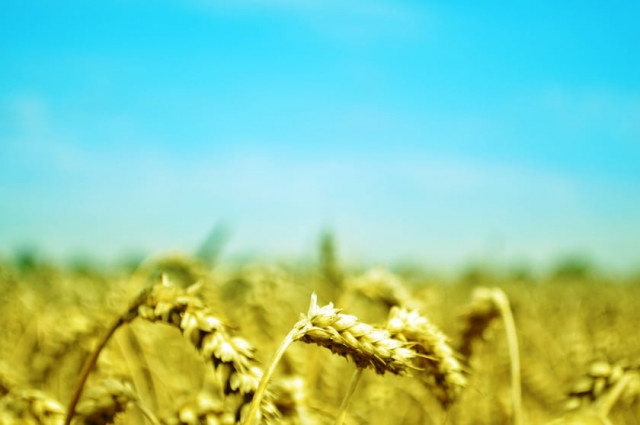SAARC report: ‘To reduce risk to crop yields, understand climate change’
Report calls for examining weather change patterns’ affect on agriculture.

Report calls for examining weather change patterns’ affect on agriculture. PHOTO: FILE
To reduce the risk to crop yields from erratic weather patterns, understanding climate variability and examining climate information are needed.
These were the suggestions of a country status report on Pakistan, released by the South Asian Association for Regional Cooperation (Saarc) Agriculture Centre, whose aim is to review the present situation and identify strengths and weaknesses.
The report, titled “Impact of Climatic Parameters on Agricultural Production and Minimising Crop Productivity Losses through Weather Forecast and Advisory Service in Saarc Countries”, also includes country reports for India, Bangladesh, Nepal and Sri Lanka.

In the foreword, Saarc Agriculture Centre Director Dr Abul Kalam Azad states that “global climate changes and increasing climatic variability are likely to exert pressure on agricultural systems and may constrain attainment of future food production targets”.
Azad highlights adaptation research, capacity building, policies and strategies such as weather based agro-advisory service as needed urgently.
The Pakistan report, penned by Dr Muhammad Asim of the Pakistan Agricultural Research Centre, notes that the country lacks non-specific climate information, with providers and users of information either ignorant of the possible consequences of climatic outcome or unable to quantify it.
“To improve climate risk related decision making at the farm level, farmers need to gain a better understanding of climate factors that affect crop yield in their environment,” the report stated. “This will allow decision makers to identify possible management options based on climate information or seasonal climate forecasts.”

Asim suggested that crop growth simulation models should be used to determine optimum sowing time for crops.
The sowing time is important, especially for wheat, Pakistan’s most essential crop, which accounts for 10.1 per cent of the value added in agriculture and 2.2 per cent of Pakistan’s Gross Domestic Product (GDP), according to the Economic Survey of Pakistan 2012-13.
As the report noted, delayed planting could reduce wheat yield almost linearly at the rate of 42 kilogramme per hectare per day past optimum sowing period.
The Pakistan chapter in the Saarc report used a case study of climate’s impact on wheat productivity in Islamabad.
According to the report, the long-term mean temperature in Islamabad in wheat growing season ranged between 16 to 19 degrees Celsius from 1961-2007 and long-term rainfall pattern ranged between 100 milimetres and 800 milimetres per year. This “enormous year-to-year climate variability” is a major source of wheat production unpredictability, the report said.
Decreased rainfall observed in September in Islamabad could also be a concern for wheat as it could lead to less residual moisture for sowing of wheat in October.
The report suggested Pakistan focus on research to enhance resilience in crops through biotechnology and provision of better climate information through forecasting systems.
Pakistan has a mechanism for weather forecasting under the Pakistan Meteorological Department which also performs climate modeling and also has an agricultural meteorology (Agromet) advisory system, the report stated. The dissemination of Agromet data to the farmers is done through meetings, radio programmes and the electronic media.
Comparative study of the country reports suggests Pakistan can use India’s model of using SMS and Kisaan Call Centres to supply data to farmers as well.
The report suggests Pakistan should engage in participatory, cross-disciplinary research for successful climate applications.
Published in The Express Tribune, July 7th, 2013.



















COMMENTS
Comments are moderated and generally will be posted if they are on-topic and not abusive.
For more information, please see our Comments FAQ